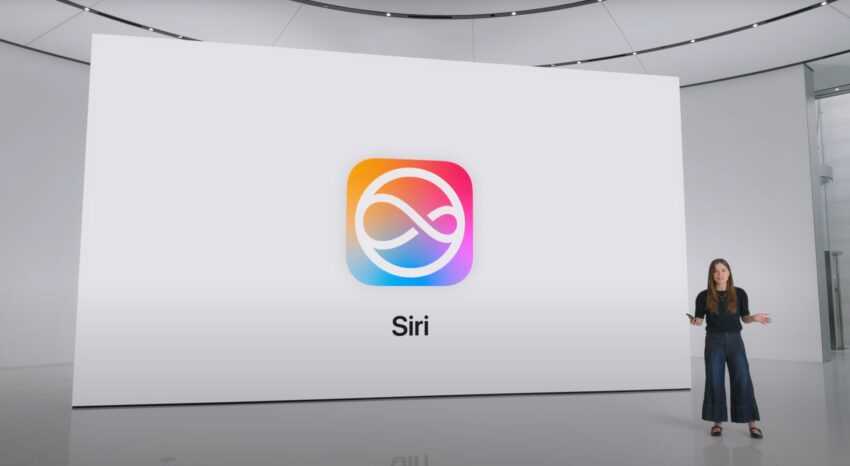
apple s veritas chatbot is reportedly an Apple is reportedly testing an internal chatbot named Veritas as part of its efforts to enhance Siri’s artificial intelligence capabilities.
apple s veritas chatbot is reportedly an
Background on Siri’s Evolution
Siri, Apple’s voice-activated virtual assistant, has undergone various transformations since its launch in 2011. Initially celebrated for its innovative approach to voice recognition and natural language processing, Siri has faced increasing competition from other AI-driven assistants such as Amazon’s Alexa and Google Assistant. As these competitors have evolved, Apple has struggled to keep pace, leading to concerns about Siri’s relevance in the rapidly advancing AI landscape.
In recent years, Apple has acknowledged the need for a significant overhaul of Siri to meet user expectations and technological advancements. The company has faced criticism for the assistant’s limitations, particularly in areas such as contextual understanding and the ability to perform complex tasks. This has prompted Apple to invest in new technologies and strategies to improve Siri’s functionality and user experience.
Introduction of Veritas
According to Bloomberg’s Mark Gurman, Apple is currently testing a revamped version of Siri through an internal chatbot called Veritas. This initiative is part of Apple’s broader strategy to enhance its AI capabilities and keep pace with competitors. Veritas allows Apple employees to interact with the new features of Siri in a controlled environment, enabling the company to gather valuable feedback and make necessary adjustments before any public release.
Features of Veritas
Veritas is designed to mimic the functionality of popular chatbot applications like ChatGPT and Google’s Gemini. Employees can engage in conversations with the bot, posing questions and receiving responses in real time. This interactive format allows users to explore various functionalities, such as:
- Searching Personal Data: Veritas can sift through personal data, providing users with tailored responses based on their previous interactions and stored information.
- In-App Actions: The chatbot can perform specific tasks, such as editing photos or managing calendar events, showcasing Siri’s potential to integrate more deeply with Apple’s ecosystem.
- Conversation History: Users can revisit past exchanges, allowing for deeper exploration of topics and a more engaging user experience.
This feedback loop is crucial for Apple as it seeks to refine Siri’s capabilities and ensure that the assistant meets the needs and expectations of its users. However, it is important to note that, at this stage, Veritas is intended solely for internal use, with no immediate plans for a consumer rollout.
Challenges in the AI Race
Apple’s journey in the AI landscape has not been without its challenges. The company has faced delays in the development of its next-generation Siri, which has raised questions about its commitment to AI innovation. The initial launch of Apple Intelligence, a feature designed to enhance Siri’s capabilities, received a lukewarm response from both consumers and critics alike. This has led to increased scrutiny of Apple’s approach to AI and its ability to compete effectively in a crowded market.
Industry experts have pointed out that Apple’s reluctance to fully embrace AI technologies may hinder its progress. While the company has a reputation for prioritizing user privacy and security, this focus can sometimes conflict with the data-driven nature of AI development. As competitors like Google and Amazon continue to push the envelope with their AI offerings, Apple must find a balance between maintaining user trust and delivering cutting-edge technology.
Stakeholder Reactions
The introduction of Veritas has elicited mixed reactions from stakeholders within the tech community. Some industry analysts view the internal testing as a positive step, indicating that Apple is taking proactive measures to enhance Siri’s capabilities. The ability to gather employee feedback could lead to a more refined product when it eventually reaches consumers.
However, there are concerns regarding Apple’s decision to keep Veritas internal. Gurman himself has expressed that this approach may be a mistake, suggesting that Apple could benefit from a broader testing phase that includes consumer input. By limiting access to Veritas, Apple risks missing out on valuable insights that could inform the development of a more user-friendly and effective assistant.
Comparative Analysis with Competitors
In the context of the ongoing AI race, it is essential to consider how Veritas and the upcoming Siri revamp stack up against competitors. Both Google and Amazon have made significant strides in their AI offerings, with Google Assistant and Alexa continuously evolving to meet user demands. These platforms have successfully integrated advanced machine learning algorithms, enabling them to understand context and perform complex tasks with ease.
For example, Google’s Gemini has garnered attention for its ability to provide nuanced responses and engage in more natural conversations. This level of sophistication has raised the bar for AI assistants, putting pressure on Apple to deliver a comparable experience with Siri. As Apple leans towards relying on Google’s Gemini for AI-powered search capabilities, it raises questions about the company’s long-term strategy for Siri and its commitment to developing proprietary solutions.
Future Implications
The development of Veritas and the anticipated revamp of Siri have significant implications for Apple’s future in the AI space. As the company navigates the complexities of AI technology, it must consider several factors:
- User Expectations: With increasing competition, consumers have come to expect more from virtual assistants. Apple must ensure that the revamped Siri meets or exceeds these expectations to retain its user base.
- Data Privacy: Apple’s commitment to user privacy is a double-edged sword. While it builds trust among users, it may also limit the data available for training AI models, potentially hindering performance.
- Market Position: As competitors continue to innovate, Apple must find a way to differentiate Siri from other AI assistants. This may involve unique features or improved integration with Apple’s ecosystem.
Conclusion
Apple’s internal testing of the Veritas chatbot represents a critical step in the company’s ongoing efforts to enhance Siri’s capabilities. While the initiative showcases Apple’s commitment to improving its AI offerings, the decision to keep Veritas internal raises questions about the company’s approach to user feedback and market competition. As Apple continues to navigate the challenges of the AI landscape, the success of the revamped Siri will ultimately depend on its ability to meet user expectations while maintaining its core values of privacy and security.
Source: Original report
Was this helpful?
Last Modified: September 29, 2025 at 2:36 am
0 views















